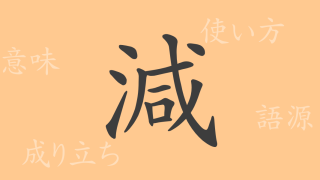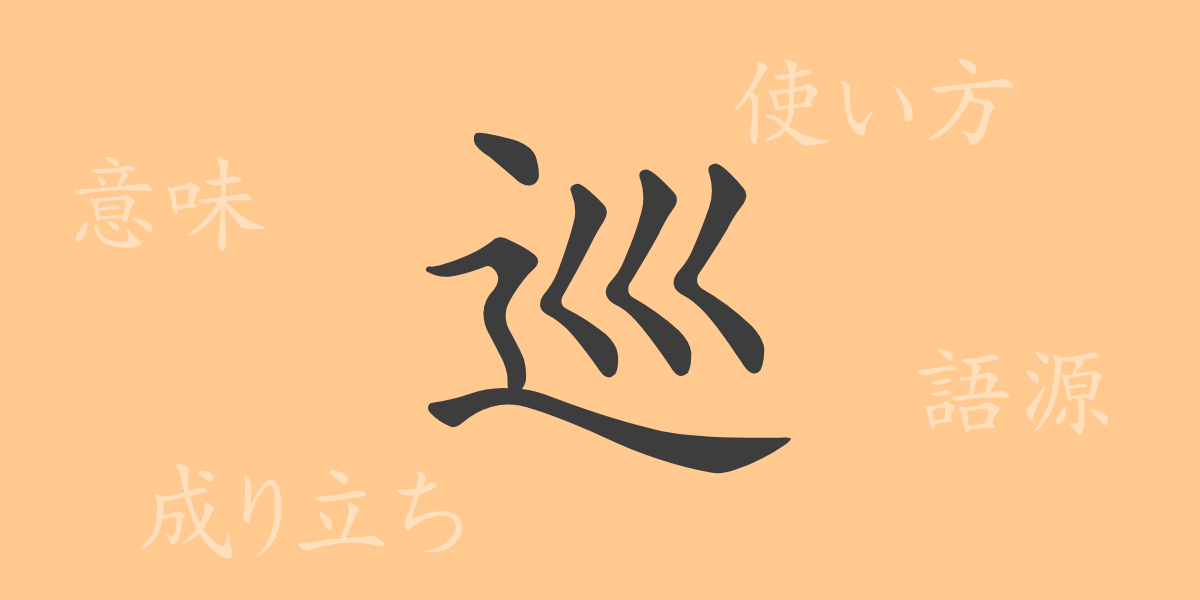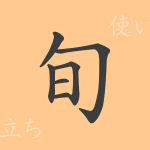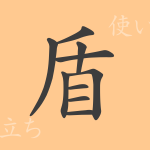Language is a treasure trove of culture and history, and the commonly used Japanese kanji “巡(じゅん, jun)” is no exception. This single character carries deep meanings and is closely connected to the lives of Japanese people. In this article, we will explore the allure of the kanji “巡(じゅん, jun)” from its origins to its meanings, uses, and even the idioms and expressions it appears in.
巡の成り立ち(語源)
The kanji “巡(じゅん, jun)” originates from ancient China. Initially, it depicted the meandering flow of a river. Over time, it came to represent various meanings related to the action of “meandering” or “circulating,” such as going around, patrolling, and making rounds.
巡の意味と用法
“巡(じゅん, jun)” means “to go around” or “to circulate” and refers to something moving in a set path or range. Specifically, it is used in words like “巡査(じゅんさ, junsa)” (patrolling police officer) and “巡航(じゅんこう, junkou)” (cruising or flying along a set course). It appears in various contexts and scenarios.
巡の読み方・画数・部首
The kanji “巡(じゅん, jun)” has unique readings and structure.
- 読み方: 音読みでは「ジュン(じゅん, jun)」、訓読みでは「めぐ.る」「めぐ.り」と読みます。
- 画数: 全6画です。
- 部首: 部首は「巛(まがりがわ, magarigawa)」です。
巡を使った熟語・慣用句・ことわざとその意味
Here are some idioms and expressions containing “巡(じゅん, jun)”:
- 巡回(じゅんかい, junkai): To go around a set course or range.
- 巡査(じゅんさ, junsa): A rank in the police force, referring to an officer who patrols an area.
- 巡礼(じゅんれい, junrei): Pilgrimage, especially with a religious connotation, involving visiting holy sites.
巡についてのまとめ
The kanji “巡(じゅん, jun)” is used to express movement, change, and periodicity. In our daily lives, we often encounter it in expressions like “巡る季節(めぐるきせつ, meguru kisetsu)” (the changing seasons) and “巡る運命(めぐるうんめい, meguru unmei)” (the cycle of fate). Just by looking at this single character, we can appreciate the rich expressiveness of the Japanese language and the deep meanings embedded within its words.

























